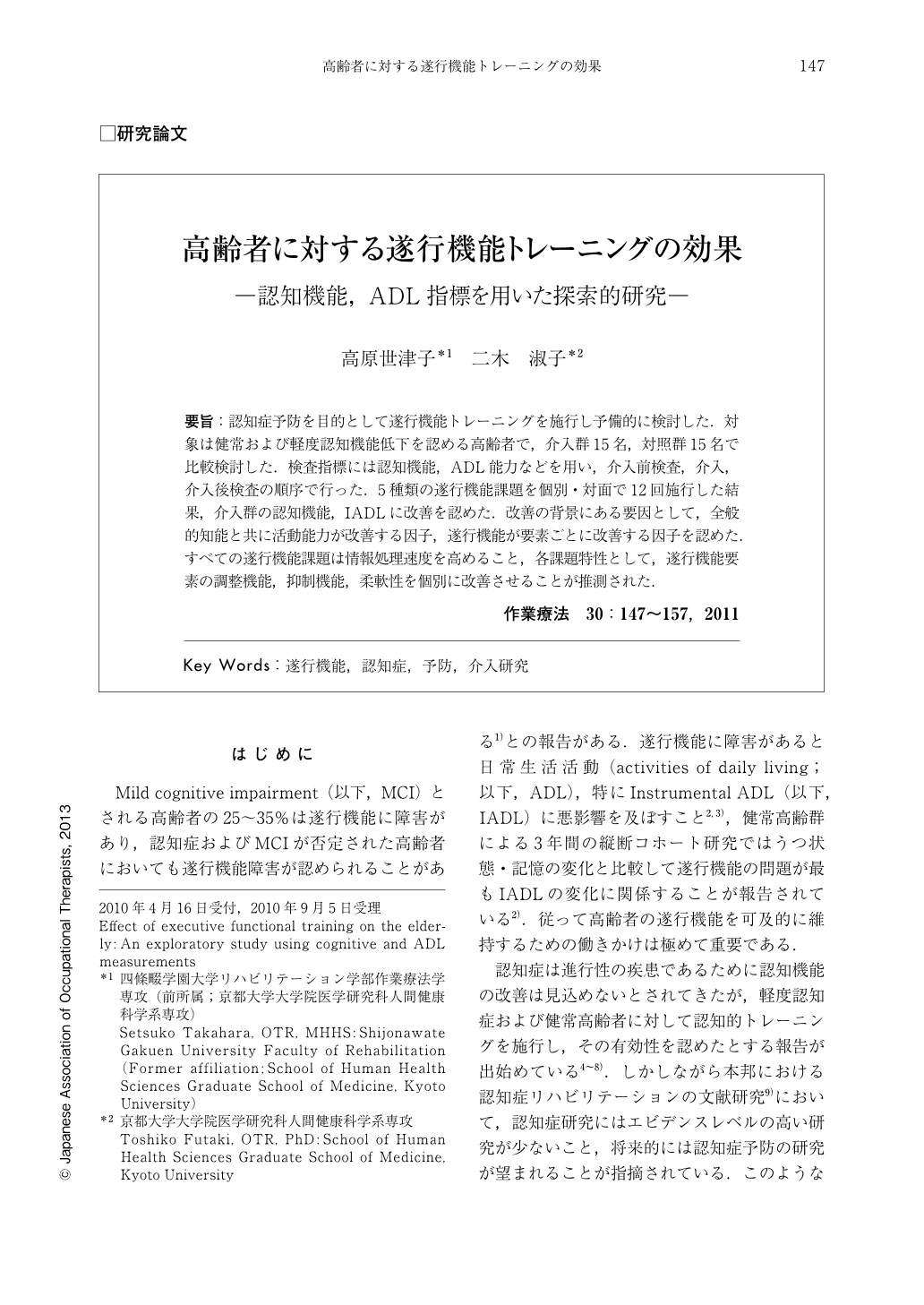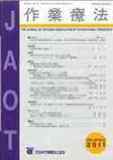Japanese
English
- 販売していません
- Abstract 文献概要
- 1ページ目 Look Inside
- 参考文献 Reference
- サイト内被引用 Cited by
要旨:認知症予防を目的として遂行機能トレーニングを施行し予備的に検討した.対象は健常および軽度認知機能低下を認める高齢者で,介入群15名,対照群15名で比較検討した.検査指標には認知機能,ADL能力などを用い,介入前検査,介入,介入後検査の順序で行った.5種類の遂行機能課題を個別・対面で12回施行した結果,介入群の認知機能,IADLに改善を認めた.改善の背景にある要因として,全般的知能と共に活動能力が改善する因子,遂行機能が要素ごとに改善する因子を認めた.すべての遂行機能課題は情報処理速度を高めること,各課題特性として,遂行機能要素の調整機能,抑制機能,柔軟性を個別に改善させることが推測された.
An exploratory study of executive functional (EF) training was conducted on the elderly with the aim to prevent dementia. Fifteen healthy and very mildly demented elderly adults (age 83.1±7.2 years, MMSE score 27±1.9) and fifteen controls (age 84.5±4.8 years, MMSE score 26.3±1.9) participated in this study. The current study investigated the effects of training using several measurements such as cognition, Activities of Daily Living (ADL), depression and motor function. The EF training was based on earlier studies consisting of five tasks. A total of twelve trainings sessions were administered to each person. Results indicate significant improvements in the Mini Mental State Examination (MMSE), Frontal Assessment Battery (FAB) and Trail Making Test (TMT). Stroop incongruity and Instrumental Activities of Daily Living (IADL) were identified in only the EF trained elderly. Factor analysis revealed improvements in three domains:‘intelligence-activities', ‘MMSE-FAB accordance' and ‘inhibition-switching'. The results suggest that all five EF tasks raised information processing speed, one improved regulating function, two enhanced mental flexibility and one strengthened inhibition function.

Copyright © 2011, Japanese Association of Occupational Therapists. All rights reserved.


